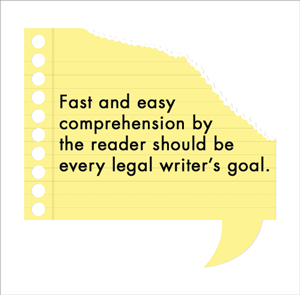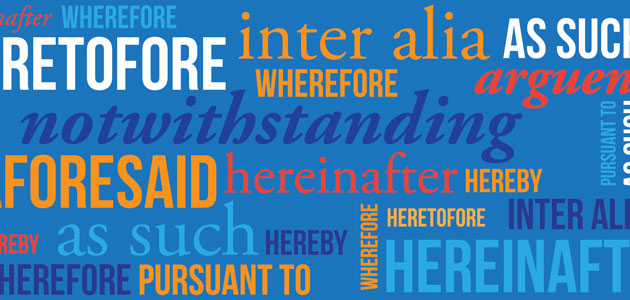What is the meaning of the word, “dialectic?” To the Greek philosopher Plato, it was akin to a dialogue, and closely associated with the Socratic method. He saw it as a medium for arriving at the truth. And that is…
Legal Writing Tip: Begin Each Paragraph with a Topic Sentence
The use of paragraphs is a critical tool in any type of nonfiction writing. In sequencing your paragraphs, you are giving the reader a roadmap to the organization of your ideas. Think of a paragraph as a unit of thought. …
Legal Writing Tip: Introduce Block Quotes
Occasionally, you will need to quote four or more lines (50 or more words) of text from a key source, such as when the precise wording matters of say, a particular statute or regulation. And, every now and then, a…
Avoid block quotations; use only the “hearts” of quotes
Effective legal writers avoid block quotations and quote supporting authorities sparingly. They do not create their briefs by stringing together a list of long quotes. Instead, they make the arguments and points in their own words—blending the heart of a…
Legal Writing Tip: More on Modifiers
This month, we offer a few final words on the use of modifiers: Avoid nesting them in a single sentence and make sure to clarify their reach. Here’s an example of a sentence containing a set of modifying phrases, each…
Legal Writing Tip: Don’t Misplace Your Modifiers or Let Them “Squint”
A misplaced modifier is one that is improperly separated from the word (or “element”) it is intended to describe, restrict, or alter. When the modifier within a sentence lacks a clear referent, the sentence often sounds ridiculous, or confusing. This…
Legal Writing Tip: Mind the Gaps Between Subject, Verb, and Object
To craft an easy-to-understand sentence, make sure the subject, verb, and object do not stray too far from each other. The subject is the actor in the sentence, while the object is the entity that is acted upon, or the…
Legal Writing Tip: Heed the Bench’s Preferences
Ross Guberman, the acclaimed legal writing consultant and author of Point Made: How to Write Like the Nation’s Top Advocates and Point Taken: How to Write Like the World’s Greatest Judges, surveyed thousands of judges—ranging from those serving at…
Legal Writing Tip: Include a Summary of Argument
Under the Federal Rules of Appellate Procedure, opening briefs must include a summary of argument that appears after the statement of the issues and the statement of the case, and before the arguments section. (Fed. Rules App. Proc., rule 28(a)(5-7),…
Legal Writing Tip: Counter a Multitude of Misstatements with Paralipsis
As we discussed last month, the deflating opener, also called the swift rejoinder, can take the wind out of an opposing brief replete with insults and overblown rhetoric—in one or two paragraphs. In a similarly efficient fashion, a paralipsis can…
Legal Writing Tip: Counter the “Rambo” Writer with a “Deflating Opener”
What should you do if your opponent, in her opposing brief, insults your arguments, or attacks your integrity in making them? What should you do if your opponent accuses you (by name, or not) of “disingenuity” and “misrepresentation,” or relies…
Legal Writing Tip: Never Insult Your Opponents or Their Arguments
If you wish to be taken seriously by the court, whether in oral or written argument, never malign or belittle your opponents or their position. Treat opposing counsel with respect, regardless of whether you feel they deserve it. This is…










